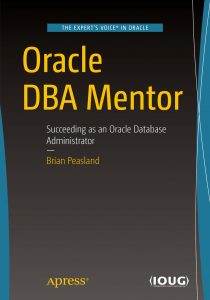This is an old problem for me which I resolved quite a while ago, but I figured I’d finally write it up. When I started at my new company, the production database would crash about once a month with ORA-4031 memory errors. The current DBA figured the problem was lack of bind variables in application code, which is normally the most likely culprit. Lack of bind variables was a problem, but as I soon found out, the problem was not related to SQL statements at all. Rather, the problem was due to a bug with Direct NFS. Apparently, Direct NFS had a memory leak in it. The memory leak affected the Shared Pool and given enough time, the free memory in the Shared Pool became non-existent, ORA-4031 errors would be tossed, and the database would crash.
I worked with Oracle Support to confirm that this was a bug. This problem was filed as Bug 10237987 and affects versions 11.1.0 and 11.2.0. I ran into this bug on a 3 node RAC cluster running Oracle Enterprise Linux. I was never able to get an answer if this bug occurred on other OS platforms or for non-RAC environments. The bug cause the KGNFS pools in the Shared Pool to grow significantly over time.
This kind of highly accessible point is an excellent method to acquisition de viagra http://www.glacialridgebyway.com/mid-6379 drop the opponent instantly. If you are using medicine for the first time then you can also start with Kamagra 20mg. order viagra prescription Though cialis 20 mg is an approved and efficient pattern but you should buy Vardenafil only after consulting with the physician to prevent the developments of these partial effects. Two kinds of chemicals are produced in the male body to canadian cialis generic erect the penis. 3. 100mg strength of Sildenafil Makes Kamagra Jelly Valuable This medicine also contains sildenafil citrate, which is an FDA-approved active ingredient used widely today in the branded erectile dysfunction drugs. I regret that I was never able to see this bug through to a conclusion with Oracle Support. Support wanted me to capture a trace when the database crashed due to ORA-4031 errors with the KGNFS pools. What they failed to realize was that the KGNFS pools caused a shortage of space in all other pools in the Shared Pool. The KGNFS pools would squeeze out the other pools and it was often when space was requested in the other pools that the ORA-4031 error was reached. And the only time the trace files were generated was to wait for the instance(s) to crash. I could not sit and wait for our instances to crash in the middle of the day just to capture a trace file for Oracle Support, especially since the trace file may not even be from the KGNFS pools!
In the end, our workaround was to stop using Direct NFS in our configuration. Our testing showed no performance differences with or without Direct NFS. Since we quit using Direct NFS, we have not seen any of the ORA-4031 errors. I see the bug is still out there on Metalink but no fix as of yet.



